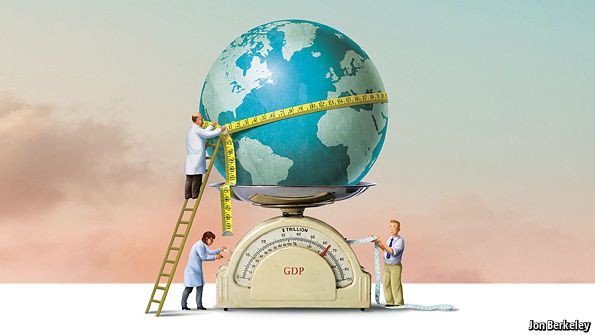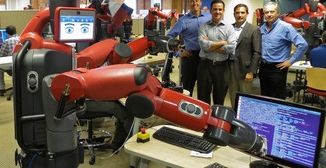Nice
Mark L. Clifford on China, renewable energy, and economic growth.
By young china watchers for the diplomat.
April 29, 2016.


New requirement if you’re a Smartphone device provider and trying to sell in India.
Starting next year, all mobile phones sold across India must include a panic button, local news outlets are reporting. In addition, by 2018, all cell phones need to come with a built-in GPS chip, so a person in trouble can be more easily found.
“Technology is solely meant to make human life better and what better than using it for the security of women,” communications and IT minister Ravi Shankar Prasad said in a statement, according to The Economic Times. “I have taken a decision that from January 1, 2017, no cell phone can be sold without a provision for panic button and from January 1, 2018, mobile sets should have in-built GPS.”
According to the Times, those with feature phones can press keys 5 and 9 to alert local law enforcement to an emergency under the new policy. On smartphones, vendors will be required to display an “emergency” button. Smartphone makers can also build in a feature that alerts law enforcement once the on/off button is pressed three times in succession.


Very eye opening: North America has the largest market for silent cancer therapeutic, followed by Europe.
Silent cancer refers to those types of cancer which are undiagnosed in early stages. This is due to asymptomatic nature of the disease which makes it difficult to identify the disease till it progresses to advanced stages. Major silent types of cancer include brain, cervix, esophagus, mouth and larynx, ovarian, pancreatic, kidney, and liver cancer. Some silent types of cancer such as ovarian cancer, esophageal cancer, and pancreatic cancer show symptoms in their early stages. Ovarian cancer occurs in epithelium or lining cells of the ovary. Major signs and symptoms of ovarian cancer include pain or cramps in the belly, nausea, abnormal vaginal bleeding, and bloating. Pancreatic cancer is one of the fastest growing types of cancer worldwide. Esophagus cancer is more common among the older population, compared to adults. This cancer is mainly treated by chemotherapy, surgery, and radiosurgery. Moreover, physicians also use combination therapy for the treatment of silent cancer. For instance, the combination of radiation therapy and chemotherapy is very effective in the treatment of silent cancer.
The global silent cancer therapeutic market is categorized based on type, and mode of treatment. Based on type, the report covers tumors, brain, mouth and larynx, esophagus, liver, renal, pancreatic, cervix, and ovarian cancer. Based on mode of treatment, the report covers chemotherapy, targeted therapy, pharmaceutical drugs, surgery, and radiotherapy.
North America has the largest market for silent cancer therapeutic, followed by Europe. This is due to technological advancements in cancer treatment devices, increasing prevalence of cancer, rise in aging population and improved healthcare infrastructure in the region. The silent cancer therapeutic market in Asia is expected to experience high growth rate over the next few years. This is due to evolving R&D activities in the field of cancer, increasing government support for research, rise in number of cancer patients, growing awareness about various types of silent cancer, increasing elderly population and developing healthcare infrastructure in the region. Moreover, growing demographics and economies in developing countries such as India and China are expected to drive the silent cancer therapeutics market in Asia.

I believe Richard Feynman was one of our greatest scientific minds. He had a very particular way of looking at the world thanks to his father, and it was to look at the world around him as if he were a Martian. Like a fish born into water, it’s hard to actually see water as being water, because it’s all a fish ever knows. And so as humans, it’s a good idea to try and step outside of our usual frame of mind, to see what it is we as humans think and do, from the perspective of a mind totally alien to our everyday environment. With that in mind, here’s what humans are doing right now, from the perspective of someone from far, far away…
What an interesting place and an interesting time it is for a visit. Earth’s most intelligent primates are busy creating technologies that allow them all to do less work, freeing themselves from millennia of senseless toil and drudgery. Strangely, however, they are using such technologies to force each other to work longer and harder. In one area called the United States, responsible for so much of the world’s technological innovation, at a time when productivity has never been higher, the number of hours spent working for others in exchange for the means to live is now just shy of 50 hours per week, where it was once 40 and soon supposed to be 20 on its way to eventually approaching zero.
Humans are even performing work that doesn’t actually need to be done at all, even by a machine. One of the craziest examples of such completely unnecessary work is in Europe where an entire fake economic universe has been created under the label of “Potemkin companies” like Candelia.


Income inequality in the United States has risen sharply in recent years and continues to get worse. Widespread unemployment is becoming imminent, as more and more traditional jobs are replaced by technology and automation. Without serious intervention, we could face massive increases in poverty and civil unrest in the years ahead.
A guaranteed Basic Income, which would directly provide all Americans with enough money each month to live on, would both end poverty in the US and shift our economy to one that doesn’t require full employment. It’s a simple program that could save us from the looming economic crises.
It’s time for the federal government to create a social safety net designed for the 21st-century. We’re calling on President Obama and members of the United States Congress to enact a Basic Income for all Americans.

The global space economy is growing, generating more than $300 billion a year in space-related activities, and attracting new, diverse participants and investors. A recent study also found more private money invested in commercial space development in 2015 than in the previous 15 years combined.
NASA has selected six new research proposals to understand the effective drivers of investments in the space economy.
In its second call for economic studies related to investments in the space economy, the agency picked studies that cover topics ranging from in-space manufacturing in low-Earth orbit (LEO) to the economics of resources obtained from near-Earth objects (NEO), such as asteroids.

The Japanese government is considering giving away money ‘vouchers’ to poor young people to boost consumption, according to reports.
Following the examples of Finland, Canada and the Netherlands, Japan is considering the introduction of basic income, a tax-free income, after recent surveys showed that under-34s in Japan have cut spending by 11.7 per cent year on year.
Proponents of basic income say that not only does it reduce financial poverty but it has a number of other benefits, such as rewarding unpaid activities not recognised as economic contributions (parenting, for instance).